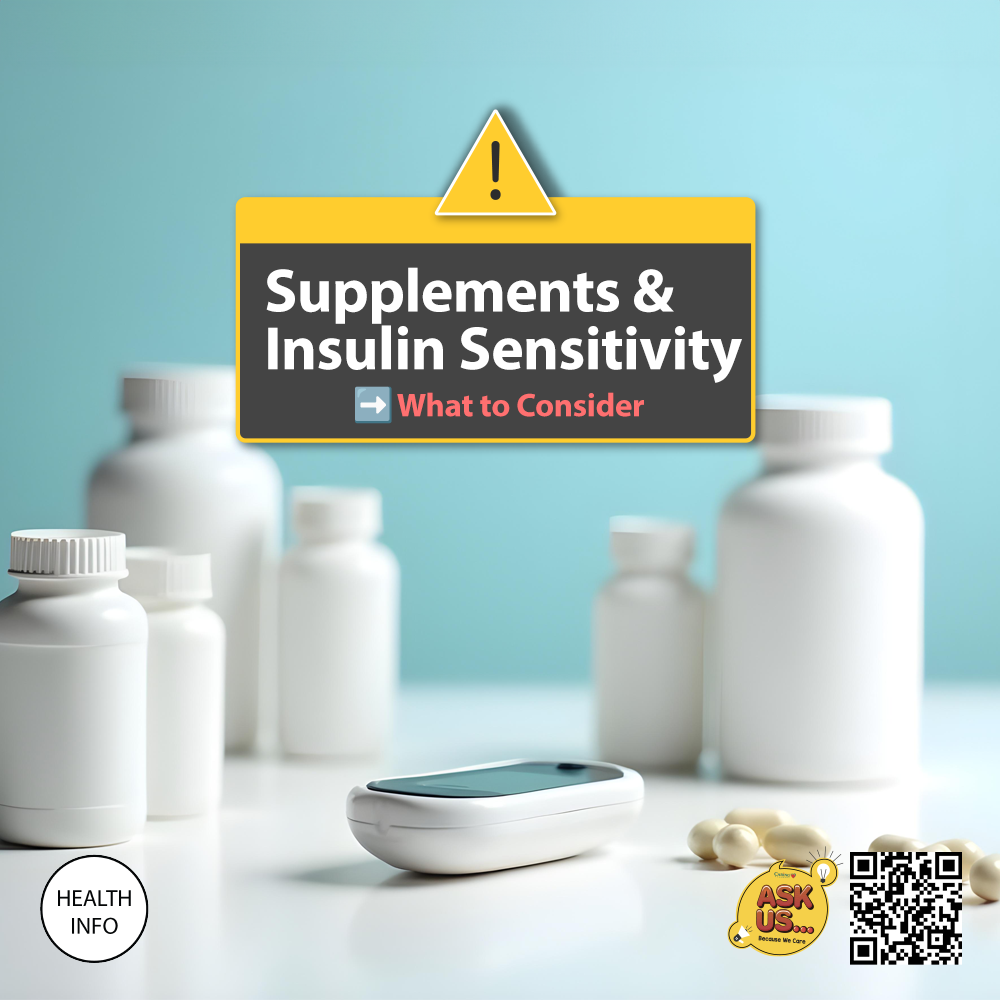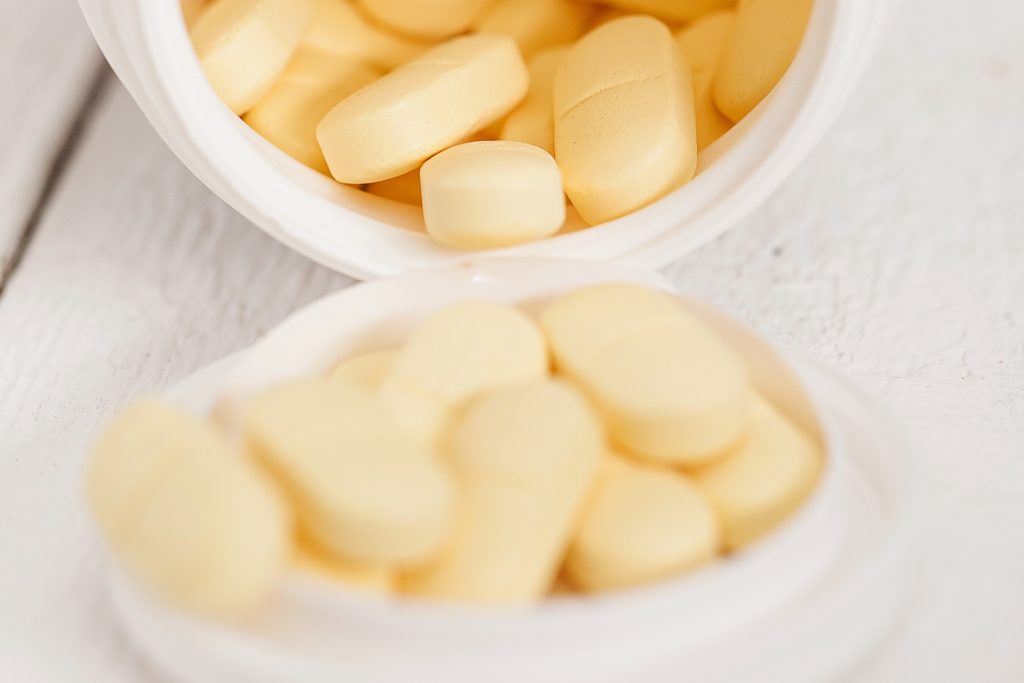- Home
- Health Center
- Health Info
- Supplement and insulin sensitivity: What to consider
Diabetes
Supplement and insulin sensitivity: What to consider


Understanding Insulin Sensitivity
Insulin sensitivity refers to how effectively body cells respond to insulin, which helps regulate blood sugar levels. High sensitivity means cells efficiently use insulin to absorb glucose, keeping blood sugar stable. Low sensitivity, or insulin resistance, can lead to higher blood sugar and increase the risk of Type 2 Diabetes1. Improving insulin sensitivity is crucial for managing and reducing this risk.
Supplements That May Improve Insulin Sensitivity
Several supplements have been studied for their potential to enhance insulin sensitivity, which include:
- Chromium: Chromium is a key trace mineral important for processing carbohydrates and fats. Research shows it can improve insulin sensitivity, especially in people with type 2 diabetes. By helping insulin move glucose into cells more effectively, chromium may support better blood sugar control2.
- Vitamin D: Vitamin D is essential for bone health and also plays a role in glucose metabolism. Research indicates that low levels of vitamin D are associated with insulin resistance and type 2 diabetes. Supplementing with vitamin D can improve insulin sensitivity, especially in individuals with low baseline levels of this vitamin3.
- Bio-Charantia (Bitter Melon): Bitter melon, or Bio-Charantia, is a traditional herbal remedy known for its potential effects on blood sugar control. Studies have shown that bitter melon may improve insulin sensitivity and help reduce blood glucose levels by enhancing glucose uptake and mimicking insulin effects4.
- Alpha-Lipoic Acid (ALA): Alpha-lipoic acid is an antioxidant that has been studied for its role in helping to reduce oxidative stress and inflammation, which are associated with insulin resistance. Clinical studies support its use in enhancing insulin action and lowering blood glucose levels5.
Lifestyle Factors
While supplements can support insulin sensitivity, they are most effective when combined with a healthy lifestyle:
- Diet: A balanced diet rich in whole foods, including fruits, vegetables, whole grains, and lean proteins, supports insulin sensitivity. Reducing the intake of processed foods and sugars helps in maintaining stable blood sugar levels and reduces the risk of insulin resistance6.
- Exercise: Regular physical activity is crucial for enhancing insulin sensitivity. Exercise increases glucose uptake by muscles and improves overall metabolic health. Recommendations include at least 150 minutes of moderate-intensity aerobic activity per week6.
- Weight Management: Maintaining a healthy weight is vital for optimal insulin sensitivity. Excess body fat, especially around the abdomen, contributes to insulin resistance. Effective weight management through a combination of diet and exercise can significantly improve insulin sensitivity2.
Conclusion
As the old saying wisely reminds us, “Health is wealth.” It’s never too late to begin prioritizing your well-being, whether that means embracing a healthier lifestyle or incorporating supplements to reach your health goals. Keeping your blood sugar levels in check is crucial for overall health and vitality. For personalized advice and blood sugar testing, visit your nearest Caring Pharmacy. Our services are available at all Caring Pharmacy locations, ensuring you have access to expert care whenever you need it. We look forward to helping you achieve your health goals!
References:
- American Diabetes Association. (2023). Insulin Sensitivity. Retrieved from American Diabetes Association
- National Institutes of Health. (2022). Chromium. Retrieved from National Institutes of Health
- Institute of Medicine. (2011). Dietary Reference Intakes for Calcium and Vitamin D. Retrieved from National Academies Press
- Journal of Ethnopharmacology. (2013). Bitter Melon (Momordica charantia) and Its Role in the Management of Diabetes: A Review of Clinical and Preclinical Studies. Journal of Ethnopharmacology, 145(1), 3-16.
- Diabetes Care. (2009). Alpha-Lipoic Acid in the Treatment of Diabetic Peripheral Neuropathy. Diabetes Care, 32(1), 123-128.
- American College of Sports Medicine. (2020). Exercise and Type 2 Diabetes: The Role of Physical Activity in Improving Insulin Sensitivity. Medicine & Science in Sports & Exercise, 52(1), 1-13.
Latest Health Info
Unpacking Lactose Issues: Intolerance, Deficiency, and Malabsorption Explained
Ever wonder why some people, or even yourself, are suffering from lactose intolerance? Lactose, the primary sugar in milk and ...
Detect to Protect: Why Cancer Screening Matters
Cancer is a complex group of diseases characterised by the uncontrolled growth and spread of abnormal cells in the body. ...
Get Vaccinated: Protecting Lives, One Shot at a Time
Vaccines are among the most powerful tools in medicine, saving millions of lives by preventing serious diseases. From children to ...



